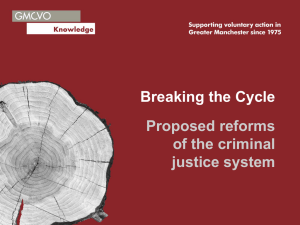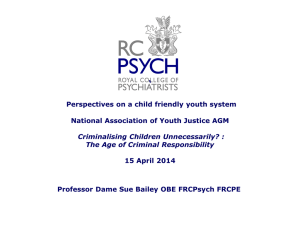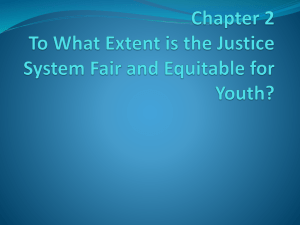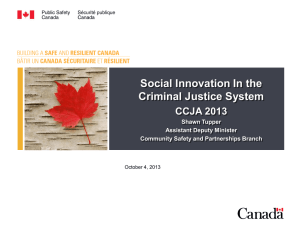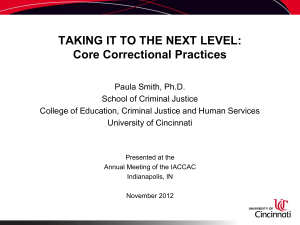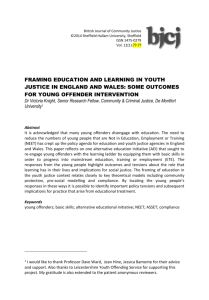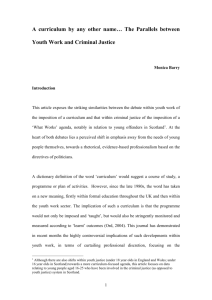The-Power-of-Stories-by-Robert
advertisement
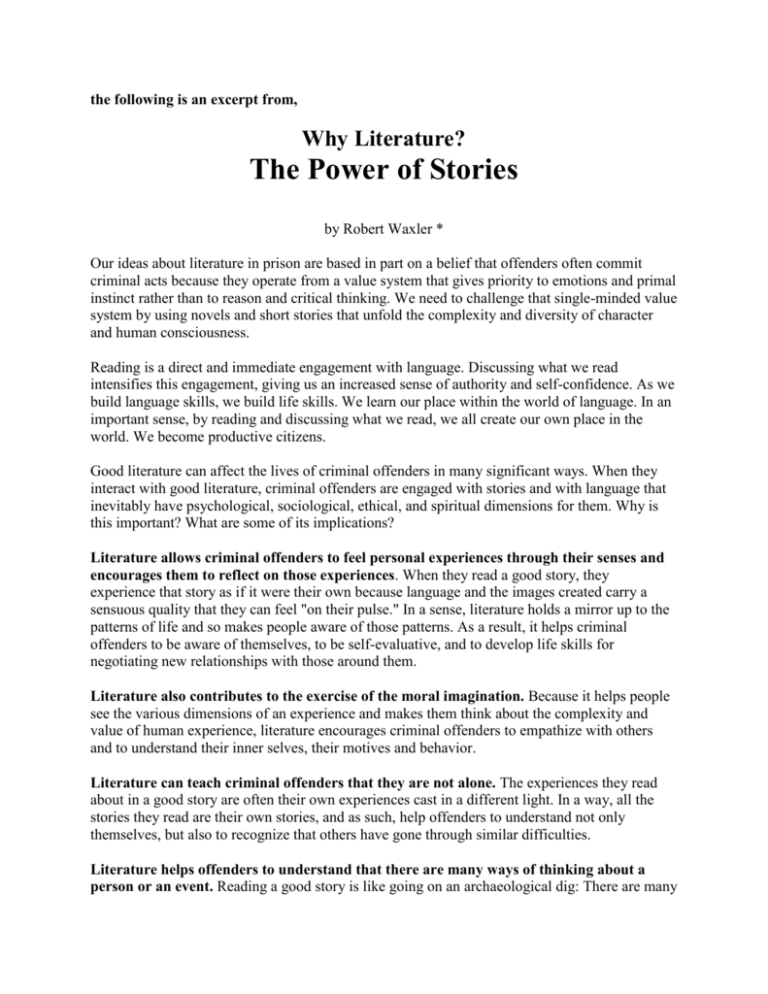
the following is an excerpt from, Why Literature? The Power of Stories by Robert Waxler * Our ideas about literature in prison are based in part on a belief that offenders often commit criminal acts because they operate from a value system that gives priority to emotions and primal instinct rather than to reason and critical thinking. We need to challenge that single-minded value system by using novels and short stories that unfold the complexity and diversity of character and human consciousness. Reading is a direct and immediate engagement with language. Discussing what we read intensifies this engagement, giving us an increased sense of authority and self-confidence. As we build language skills, we build life skills. We learn our place within the world of language. In an important sense, by reading and discussing what we read, we all create our own place in the world. We become productive citizens. Good literature can affect the lives of criminal offenders in many significant ways. When they interact with good literature, criminal offenders are engaged with stories and with language that inevitably have psychological, sociological, ethical, and spiritual dimensions for them. Why is this important? What are some of its implications? Literature allows criminal offenders to feel personal experiences through their senses and encourages them to reflect on those experiences. When they read a good story, they experience that story as if it were their own because language and the images created carry a sensuous quality that they can feel "on their pulse." In a sense, literature holds a mirror up to the patterns of life and so makes people aware of those patterns. As a result, it helps criminal offenders to be aware of themselves, to be self-evaluative, and to develop life skills for negotiating new relationships with those around them. Literature also contributes to the exercise of the moral imagination. Because it helps people see the various dimensions of an experience and makes them think about the complexity and value of human experience, literature encourages criminal offenders to empathize with others and to understand their inner selves, their motives and behavior. Literature can teach criminal offenders that they are not alone. The experiences they read about in a good story are often their own experiences cast in a different light. In a way, all the stories they read are their own stories, and as such, help offenders to understand not only themselves, but also to recognize that others have gone through similar difficulties. Literature helps offenders to understand that there are many ways of thinking about a person or an event. Reading a good story is like going on an archaeological dig: There are many levels of meaning to discover, and there is much to explore beneath the surface. In this context, literature draws people away from the surface of life and compels them to recognize the feelings and interior emotions of others. Literature compels criminal offenders to think about their motives and behavior in new ways. It shows them that actions have consequences. More important, perhaps, it teaches them that they have the ability to choose their actions. Good stories always clarify the boundaries of our mortality and demonstrate our limitations as human beings, but good stories also prove that although we do not have complete control over our lives, we do have some power to create options and alternatives. Literature can free criminal offenders from the mind-forged manacles of their own consciousness by clarifying the experiences of their past and offering them opportunities to create a future. In this sense, good stories are intense moments of concentrated time. Too many criminal offenders appear caught in a one-dimensional, present moment. Literature reminds them of their own past and allows them to compare that past with their present. Consequently, it allows offenders to shape events and make judgments about those events. It gives them an opportunity to exorcise the past that haunts them, the nightmares that imprison their minds. Good stories offer criminal offenders the opportunity to enhance life's meaning in other ways as well. A good story can, for example, offer a broad and inclusive picture of the range of human emotions. Through reading, they meet people that they have not known and encounter new and unexpected experiences. Criminal offenders can learn from literature that life has energy and possibilities previously unknown to them. The best literature always entertains as well as teaches. It can offer adventure to break the boredom of mundane life, can give us comedy to make us laugh, or tragedy to make us cry. Finally, reading and discussing good literature are closely connected activities that give power to each other, just as the power of literature is closely connected to the power of language itself. By its very nature, the use of language is a social activity; language connects us to each other and to ourselves. When criminal offenders talk about good stories around a table, they are using language to explore their own selves and, at the same time, interacting with others. Language gives them the power to express and reveal themselves and to persuade and gain understanding from others. When they use language to articulate their feelings and ideas, they also stop themselves from committing acts of violence. * Robert Waxler co-founded Changing Lives Through Literature (CLTL) in 1991. CLTL is an innovative sentencing program for criminal offenders that centers around a series of literature seminars facilitated by a professor. He is a professor of English at University of Massachusetts, Dartmouth. He has co-edited with Jean Trounstine, Changing Lives Through Literature and Finding a Voice: The Practice of Changing Lives Through Literature.


